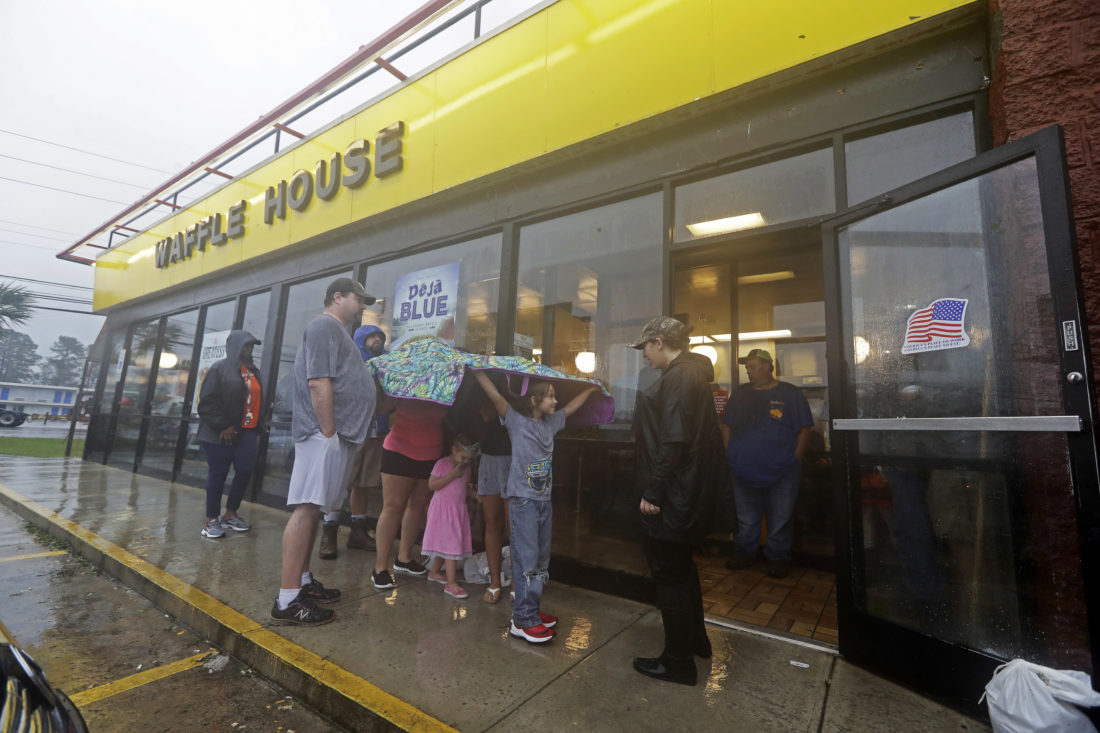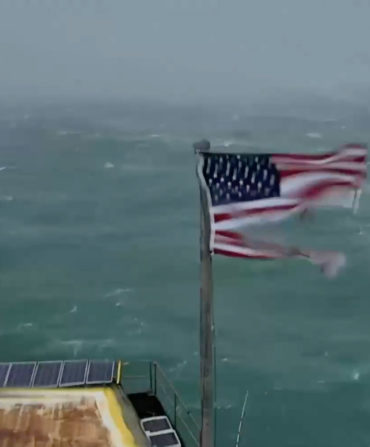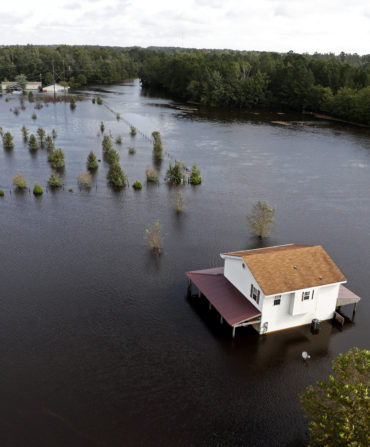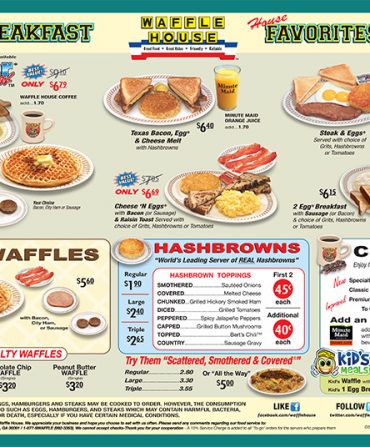Waffle House is open twenty-four hours a day, seven days a week, three hundred and sixty-five days a year, and it takes that schedule seriously—even if it has to call in a little back-up. In response to Hurricane Florence, the company has flown some two hundred people to communities affected by the storm to help keep the doors open and the grills hot.
Executives say they have been refining that process since Hurricane Hugo hit Charleston in 1989. Now, once a major weather event is forecasted, Waffle House sets up a “Storm Center” to monitor its predicted path. Supplies including food, water, and generators are staged just outside of any predicted impact, and electricians, food-safety experts, and “jump teams” of employees from other locations are prepared to swoop into affected areas as soon as it’s safe. Even FEMA looks to the restaurant chain as a measure of how well an area has fared in a disaster.
The @WaffleHouse Storm Center is activated and monitoring #Florence. Plan ahead and be safe. pic.twitter.com/UOBi5oZRRi
— Waffle House News (@WaffleHouseNews) September 11, 2018
“We say we throw chaos at chaos,” explained company vice president Will Mizell to FiveThirtyEight in 2016. “We just throw a lot of resources down there to get restaurants open. Our CEO will be there. In [Hurricane] Matthew, our chairman was there, too.” Mizell wasn’t exaggerating—Waffle House president and CEO Walt Ehmer has been spotted in the Carolinas in the aftermath of Hurricane Florence, serving hot meals to residents and rescuers. “People in the community gotta eat,” Ehmer told a CBS news correspondent from a Wilmington hotel lobby. “All these first responders are here doing all the things they can to help save people… the one thing we can do is feed people, so that’s why we’re here.”
Anybody out there wants a lesson about leadership? Who is in front of beloved @WaffleHouse in Wilmington? Making sure he feeds the hungry? Walt Ehmer, President and CEO…..God Bless! pic.twitter.com/QLVKRSYvIu
— José Andrés (@chefjoseandres) September 16, 2018
The always-open mentality isn’t just for the kinds of weather events that make national news. Each location has an employee guide with emergency response protocol, detailing when and how to continue service—even without power. A limited menu is available as long as the gas-powered griddles have fuel (sorry—it doesn’t include waffles), canned soft drinks replace fountain beverages, and disposable plates keep things moving when dishes can’t be washed.
“Yeah, we’re a little-bitty 24-hour short-order cook place, that’s what people see us as. And we’re proud to be that,” Waffle House vice president Pat Warner told NPR last week. “And that’s one of the reasons we strive to come back quickly after a storm—’cause we want to have that place where people can gather and talk about the storm over eggs and bacon and check in on their neighbors.”








